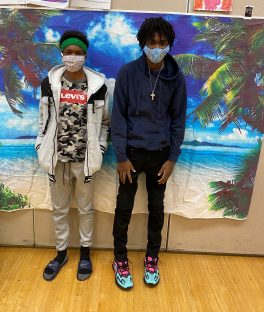 When Andria and her sons left Dallas in 2018, she was desperate but determined. To earn money for her trip, she donated plasma for $54, then packed up her sons and belongings, and hit the road. A good Samaritan at a New Mexico truck stop, sensing the seriousness of her predicament, gave her $280 and bought the family food and gas.
When Andria and her sons left Dallas in 2018, she was desperate but determined. To earn money for her trip, she donated plasma for $54, then packed up her sons and belongings, and hit the road. A good Samaritan at a New Mexico truck stop, sensing the seriousness of her predicament, gave her $280 and bought the family food and gas.
In Seattle, she faced a three-day waiting period for shelter housing. There, a case worker also helped her find a job at a grocery store and enrolled the boys in school. “The shelter was helpful and stressful at the same time,” Andria recalled. “My boys were scared and missed their family and friends. Months went by and we finally learned we were on the list to find permanent housing, but first we had to undergo a housing assessment.”
There was a lot riding on the assessment interview. A Seattle CARES team member attended the meeting with Andria and helped her understand and respond to the questions. It worked: Andria and her family moved into an apartment and started receiving other services as well.
Andria wanted her children to participate in The Rising because she knew the skills they would learn would help her boys understand and prepare for life’s challenges. She was delighted when her sons were assigned a mentor, as well.
“The impact I’ve seen since my children were assigned a mentor is amazing,” Andria said. “Phillip takes time out of his busy schedule to visit my children or takes them to do something special, spending one or two hours with them each week. He’s been a role model, letting them know when they’ve done something inappropriate. I see more determination in my children since Phillip entered their lives.”
Andria’s sons, both enrolled at Meany Middle School, have participated in The Rising since they arrived in Seattle in 2018. Last spring, when The Rising sessions moved online, Through a partnership with InterConnections, Seattle CARES provided the family with a laptop, Internet and WiFi access. Additional support, such as gift cards for groceries and supplies, was provided by 4-C Coalition.
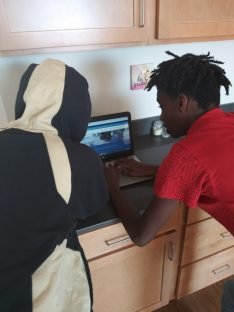
But it was not just the children who benefited. Andria also gets weekly support from the Seattle CARES team. It might be a home visit or simply a telephone call but the regular outreach makes a difference.
“Racism is embedded in our day-to-day lives,” she said, “and these programs offer a place where we can let off steam or ask questions. For my sons, having a mentor makes a big impact. Children need someone outside the home to keep encouraging and guiding them. The Rising program is good for them. Their grades are good because their mentor makes sure they keep up with their school work.”
For now, Andria is grateful that her move to Seattle offered the support she needed and a new start for her family.
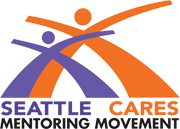

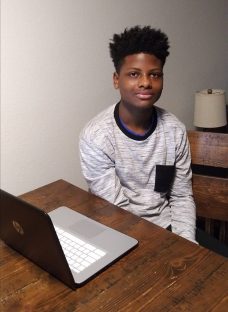 an share my thoughts without being given advice. It feels good just to be heard.”
an share my thoughts without being given advice. It feels good just to be heard.”
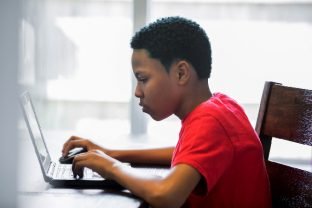
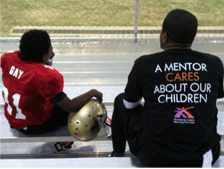 This week, Seattle CARES and some of its partner agencies are launching tutoring sessions for core subject areas for students in its
This week, Seattle CARES and some of its partner agencies are launching tutoring sessions for core subject areas for students in its